How long do AC units last?
The answer to that question depends on several factors. When was it made? How often have you had it serviced? How regularly have you used it?
Generally, AC units last between 12-30 years, with that lifespan getting longer as more resilient systems are designed.
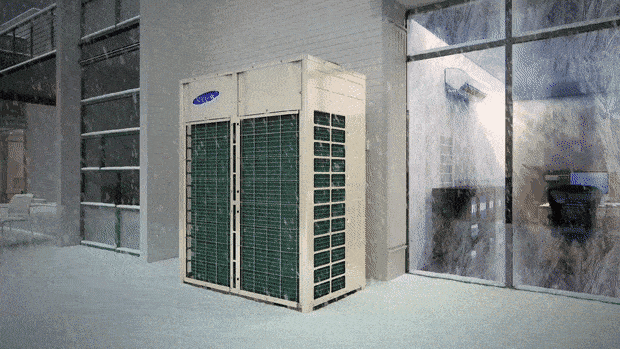
What is the Average Life of an Air Conditioner?
The tricky thing about finding the average life of an air conditioner is that you’re never comparing apples with apples. Air conditioners in humid states like Florida have a higher risk of water damage.
Air conditioners in Chicago or Alaska face frost and cold weather damage. Air conditioners in states like Texas can have a shorter lifespan simply because they’re on all the time.
That’s why there’s such a large window of AC lifespan (12-30 years). Everyone agrees you should get a decade out of them. After that, environmental factors will determine how long you can expect them to work.
What Affects How Long an Air Conditioner Lasts?
We’ve explained that the same AC, used in different states, will face different challenges and have a different operational lifespan.
There’s much more to it than that though.
AC Type
As with most purchases, the lifespan of your AC unit depends on the quality of the unit. The smaller, the cheaper, and the easier it is to move and service, the shorter the probable life of the AC unit.
In rough terms, AC lifetime breaks down like this:
|
Type of AC Unit |
Rough Lifespan-Window |
|---|---|
|
Portable |
5-10 years |
|
Window |
10-20 years |
|
Mini-Split |
15-20 years |
|
Central Air |
20-25+ years |
There’s a logic to this breakdown.
Manufacturers have to be able to sell portable and window AC units for a much smaller price than they can sell a central air system for. That means the components are likely to be cheaper.
Cheaper components aren’t just cheaper out of the goodness of a supplier’s corporate heart. They’re cheaper because they wear out more, and faster than higher-price, higher-quality elements.
That means you can draw a rough line between different types of AC units and their likely lifespan-windows.
Intensity of Usage
How hard and how often you use an AC unit affects how long it lasts. We’ve said that AC units in states like Texas, where they’re used all the time, wear out faster than they would in states where they’d get less use.
Again, there’s a logic there. If your heart was constantly pumping as fast as it would need to if you were running for a bus, you’d have a shorter lifespan too.
In Texas, say, your AC is running for that bus constantly at 100% capacity for more than 4 months each year. That means over 10 years, it will have been running for the same bus for over 3 years.
Sooner, rather than later, it’s going to have a heart attack.
Compared to some other states, Texas eats AC units. In New York, for instance, you’ll need the unit for fewer months a year, and at significantly less than 100% output. Result? A longer-living AC unit.
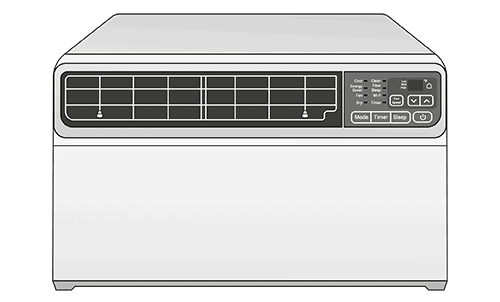
Maintenance Issues
From the time you first get your unit installed, who touches it, what they do, and how often they do it plays a role in deciding how long your unit lives. If you want to ensure your AC unit lives as long as possible, find a reputable installer.
When you’re looking to have your AC unit serviced, look for a member of the American Society of Heating, Refrigerating and Air-Conditioning Engineers or the Refrigeration Service Engineers Society.
Maintenance Frequency – And Is It Worth It?
We’ve already said that all AC units are not the same. Portable and window units are sold cheap, made with inexpensive components.
Professional AC maintenance is not cheap. So there’s a division between commodity AC units at the cheaper end, which are probably worth running till they die and then replacing, and the higher-end systems, like mini-split and central air systems.
These more expensive systems are worth maintaining, as having them properly serviced can add years to their life expectancy. It’s not a cheap process, because you’re paying for expertise.
But once every two or three years should be enough to keep your AC ticking over long enough to let you save to buy its eventual replacement.
Signs You Need to Replace Your Air Conditioner

While it’s by no means impossible for an AC unit to cough, go bang and give up the ghost in dramatic circumstances, most units won’t do that. They will face a process of increasing decrepitude though. The symptoms of that decrepitude are subtle, and unless you’re looking for them, you might let months go by before you check.
In the absence of the dramatic bang, there are two ways you’ll likely notice your AC unit is reaching the end of its useful life.
1. Dehumidifying failure
2. Significant extra power costs
So How Do You Know Your AC Is On The Fritz?
Is It Hot In Here, Or Is It Me?
The most obvious way to tell that your AC unit is no longer working as it should is if your rooms are hotter than they have been, with higher humidity. If so, you’ll know your AC’s dehumidifying function is less effective than it has been.
The dehumidifying function is commonly one of the first elements in the unit to stop working towards the end of the machine’s life. So if you’re suddenly hotter and clammier than you’d like, it could mean your AC’s days are numbered.
How Much??
Air conditioning already accounts for around 12% of US home energy expenditure. Keep an eye on your statements, though.
If you see sudden increases month on month, or the costs start running away from what you’re used to, it could mean your AC unit is becoming less and less efficient.
The AC pulls power in and uses it to cool and dehumidify the air. If it has to work harder to do that, it uses more power – and that could be reflected in a cost increase.

Replacing Versus Repairing The AC, Which is Better?
Whether you repair or replace your AC unit depends on the answers to a few key questions.
How much did you pay for the AC unit in the first place? How much will it cost to repair? How much would it cost to simply replace? And what price you put on the hassle of getting someone in to repair the unit?
Most of the answers to those questions depend on what type of unit you have in the first place. For portable and window AC units, the cost of replacement is likely to be low enough to outweigh the benefits of repairing the unit.
For mini-split and central air systems though, the higher initial cost means there’s a real debate to be had.
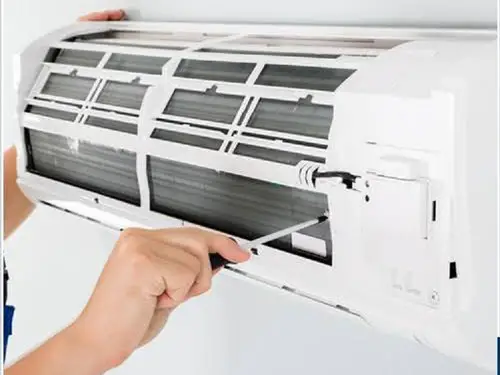
Repair
Pros
- Potentially adds years of life to your AC unit
- Defers the cost of a full replacement, so you can save up towards that cost
- Many AC issues are not fatal, so they can be repaired relatively easily
Cons
- Immediate cost of getting an engineer in
- Hassle of arranging a time to get the work done
- Living with a faulty AC unit until the work is completed
Replace
Pros
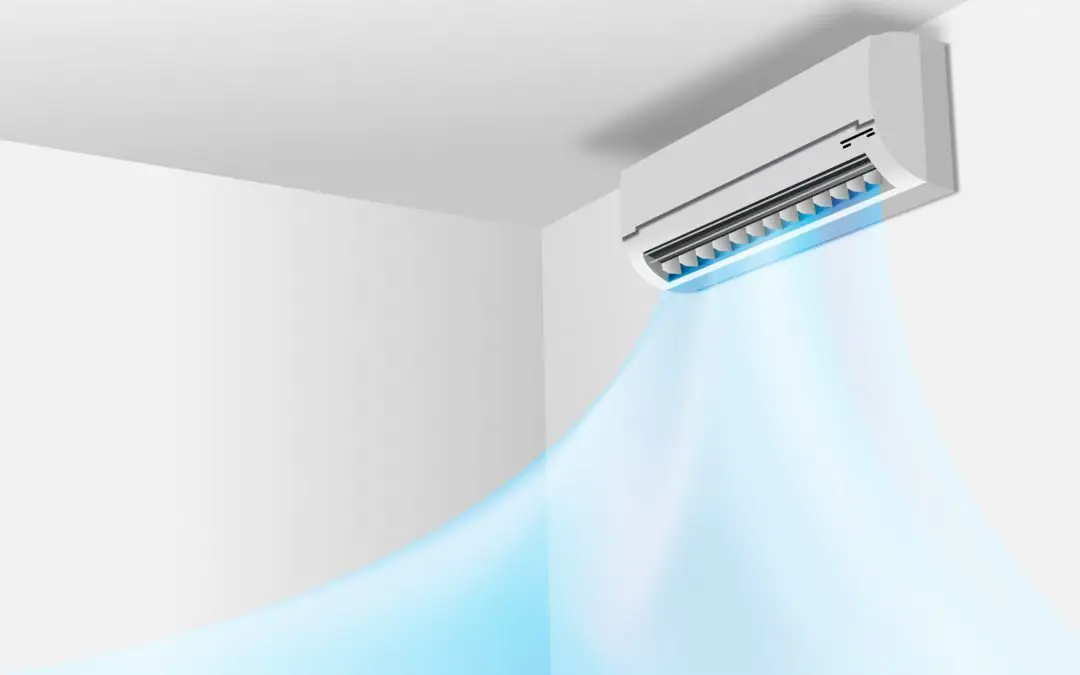
- Biting the bullet and resetting the clock on the AC’s lifespan
- Getting a modern unit often increases that lifespan anyway
- New AC efficiency features, and “new product” buzz
Cons
- Significant unexpected cash outlay
- Longer period of work, meaning more inconvenience
How Can I Extend My Air Conditioner’s Lifespan?
If you want to keep your AC unit functioning as long as possible, there are some things you can do to help it along.
Regular Maintenance
Yes, it’s expensive, but the boost you get in years of service from the AC means regular maintenance every couple of years can pay for itself.
Change Your Filters
To maximize your AC’s functionality, change the filters every couple of months.
Clean Your Machine
You clean the toilet, the shower, the oven regularly, right? You do that to make sure they work at the top of their game. Cleaning the AC and keeping it free of debris helps it work more efficiently too.
Check Your Ducting
The AC’s ducting is what pushes the conditioned air into your room to make your life better and less clammy. Check the ducting regularly – any holes, breakages, or leaks are going to impact your AC’s effectiveness and its lifespan.
Clear The Airways
If you swallowed half a cow, people would be lining up to perform the Heimlich Maneuver on you to clear your airways. Clear airways mean air can pass from place to place.
If air can’t pass from place to place, what you have is an AC unit choking to unnecessary death. Make sure you give it the occasional Heimlich Maneuver and keep the airways clear.
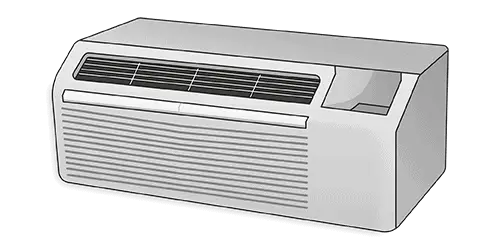
Conclusion
AC units will typically last between 12-30 years in the US, depending on where you live, what kind of unit you have, how often and how hard you run them, and your maintenance and care regime.
It’s not usually worth repairing portable or window AC units, but proper repairs can add years to the lifespan of more expensive units.
People Also Ask
AC ownership and maintenance brings lots of additional questions with it. If you want to get the best out of your AC unit, whether it’s portable, central air, or anything in between, there are a few things it’s worth knowing.
Buying? Repairing? Replacing? Be aware of your AC needs.
No, they don’t. In fact, a smaller, portable AC unit will probably only give you around a quarter of the lifespan of a full central air system. That’s because smaller units tend to sell for much less money. That means they have to use cheaper parts, which are more prone to break and wear out.
Yes, they do. The environments of some regions – more humid than most, like Florida, or more frigid than most, like Alaska – means the same units face different challenges in different regions, and so wear out differently. The longer you use a unit at more of its maximum output, the quicker it will wear out too.
Yes, it will. But it will last longest if you use it less, and at a smaller fraction of its maximum capacity too. Running an AC for 20 hours at 60% will make it last longer than running it for 40 hours at 80% over the same period.
